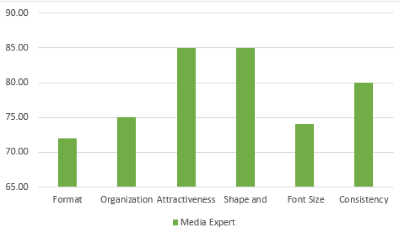Making Basic Learning Modules for Building Construction Class X Competency in Building Modeling and Information Design Skills
DOI:
https://doi.org/10.24036/cived.v11i1.490Keywords:
Development, Module, Basic Building Construction, Building Information Modelling, Green BuildingAbstract
This research was motivated by the problems faced, namely not using modules in the Basic Building Construction Basic Course on Elements of Specifications and Characteristics of Building Materials Based on Green Materials and Construction Work, as well as the competence of Class X Building Information Modeling in Building Modeling and Information Design skills. The purpose of this research is to produce products in the form of valid and practical modules. The research method used is Research &; Development (R&D) and refers to the Decide, Design, Develop and Evaluate (DDD-E) development model. Based on the results of the study, the percentage of material validity test, media validity test, and practicality test was obtained at 76%, 80% and 89.38% respectively. The conclusion in this study is that the learning modules developed are valid and practical to be used in the learning process of the elements of Specifications and Characteristics of Building Materials Based on Green Materials and Construction Works, as well as Building Information Modeling class X Building Modeling and Information Design Competencies.
Downloads
References
Redja, M. (2004). Philosophy of educational science: an introduction. Bandung: Remaja Rosdakarya.
Sukoco, S., Sutiman, S., &; Wakid, M. (2014). "Development of Computer-Based Interactive Learning Media for Students of Light Vehicle Engineering Subjects". Journal of Technology and Vocational Education. 22(2). 215-226.
Sumardjo, S., Pratama, G. N. I. P., & Vemantyasto, T. N. (2020). "The Effectiveness of the Road Construction Cost Estimation Module on Construction Cost Estimation Subjects at SMK N 1 Purworejo". Journal of Civil Engineering Education.2 (2).104–116.
Law RI Number 20 of 2003 againstthe National Education System.
Atmaja, E., &; Maulana, A. (2020). "The Relationship between Image Laboratory Utilization and Student Learning Outcomes". Pencil Journal. 9(3). 138–145.
Hartoyo, H. (2009). "Efforts to Improve Achievement through Learning with Competency-Based Modules". Journal of Technology and Vocational Education". 18(1). 61-84.
Waryanto, Nur Hadi. (January 2007). "The Use of Audiovisual Media in Supporting Learning. Paper delivered in Community Service activities for MIPA Teachers of SMA N 1, SMA N 2, SMA N 3 Bantul, at Yogyakarta State University".
Wiratmojo, P., and Sasonohardjo. 2002. "Learning Media for Teaching Materials for First Level Entrepreneurship Training. Institute of State Administration”.
Daryanto, Daulay. (2013). Develop Teaching Material Modules forTeacher Preparation and Teaching. Yogyakarta: Gava Media.
Sugiyono. (2019). Quantitative, Qualitative, and R&D Research Methods. Bandung: Alfabeta.
Tegeh, I. M., Jampel, N. J., &; Pudjawan, K. (2014). Development Research Model. Yogyakarta: Graha Ilmu.
Ivers & Barron. (2002). Multimedia Projects in Education, Designing, Producing and Assessing. New York: John Willey & Sons.
Arikunto, S. (2019). Research Procedure. Jakarta: PT. Bineka Cipta.
Setyosari, Punaji. (2016). Research and Development Methods. Jakarta: Prenada Media Group.

Downloads
Published
How to Cite
Issue
Section
License
Copyright (c) 2024 Endang Susilawati, Laras Oktavia Andreas

This work is licensed under a Creative Commons Attribution 4.0 International License.







2.jpg)
